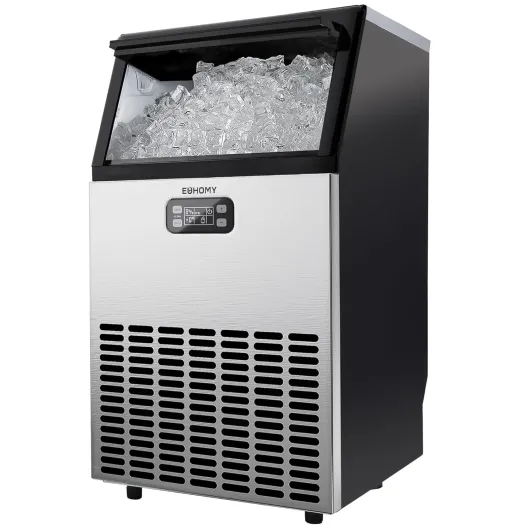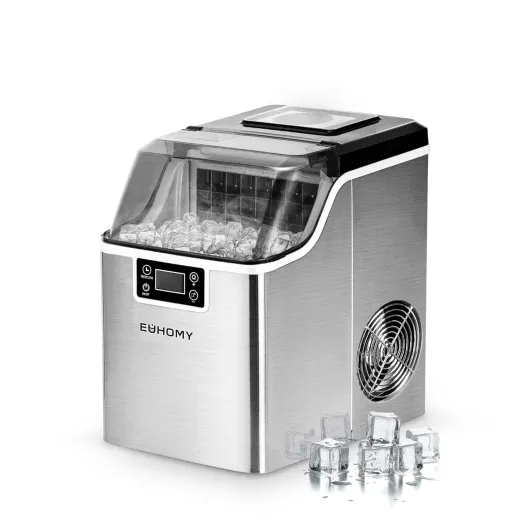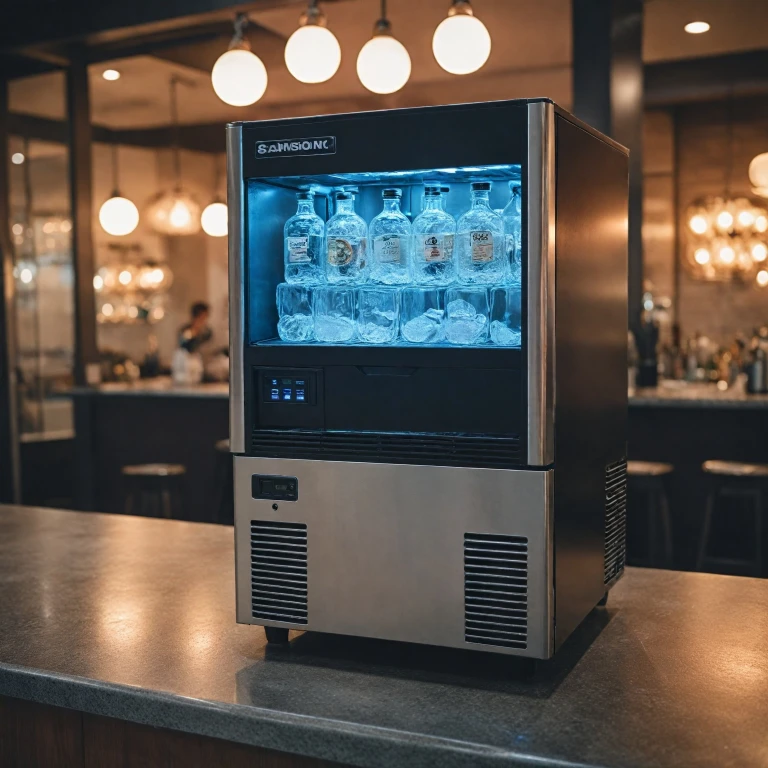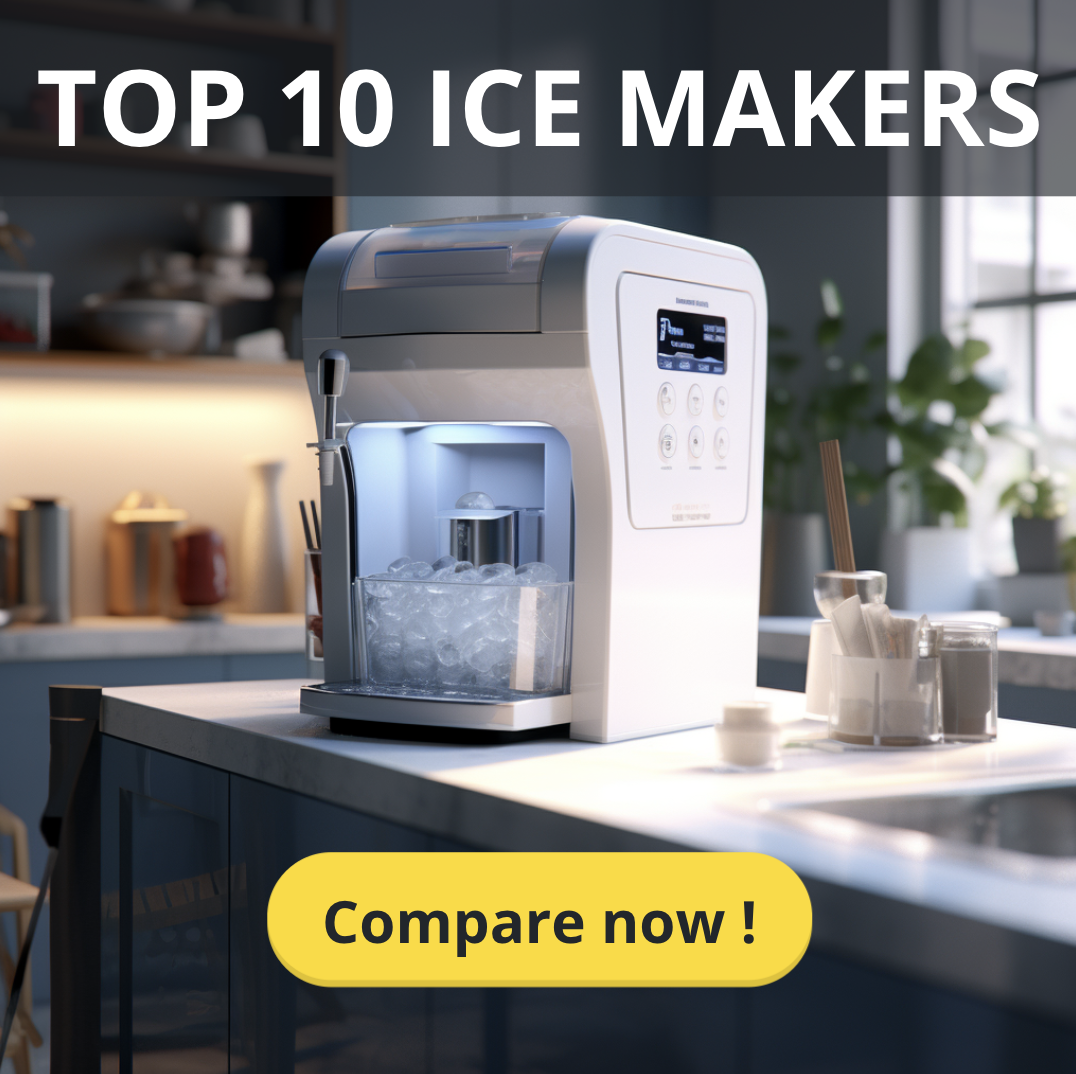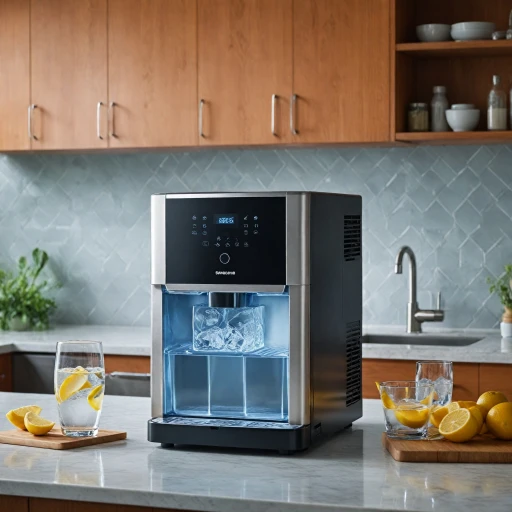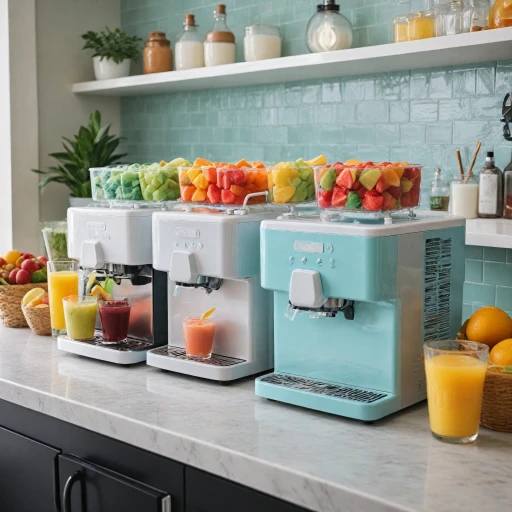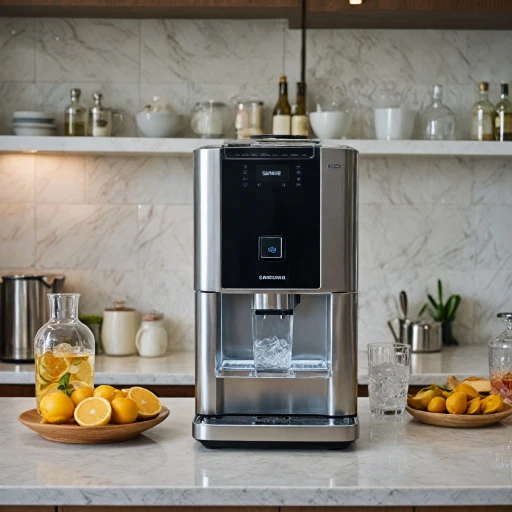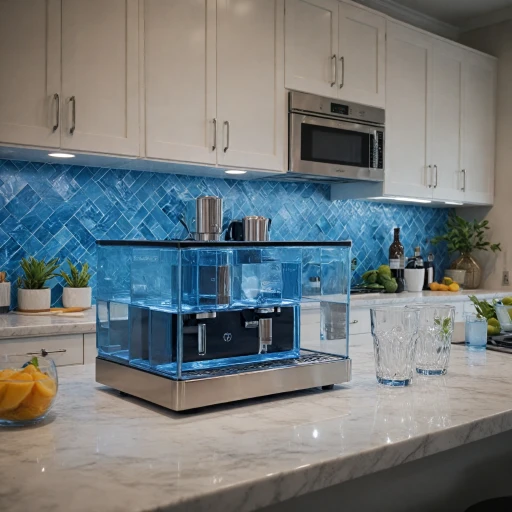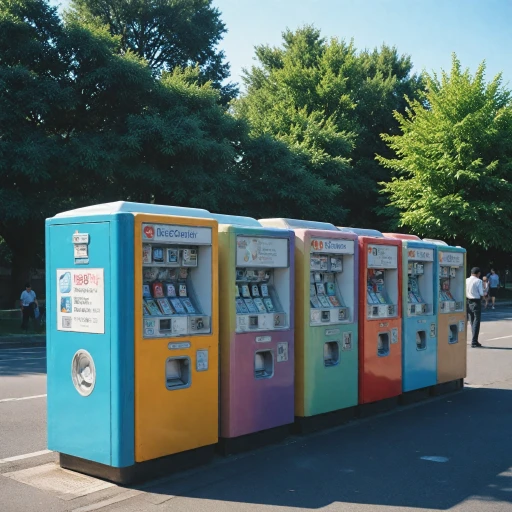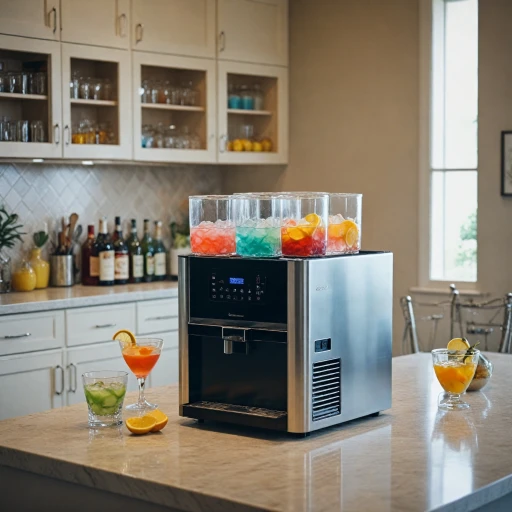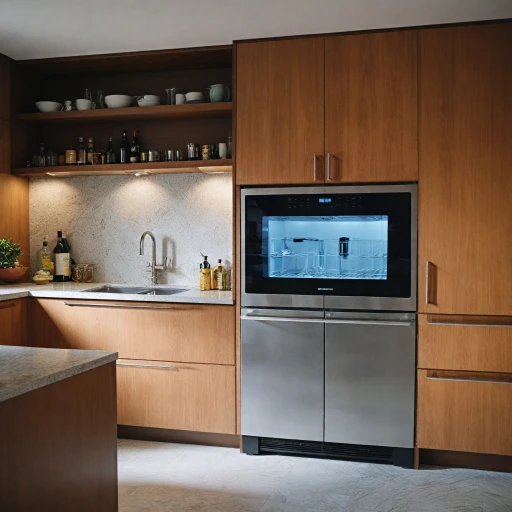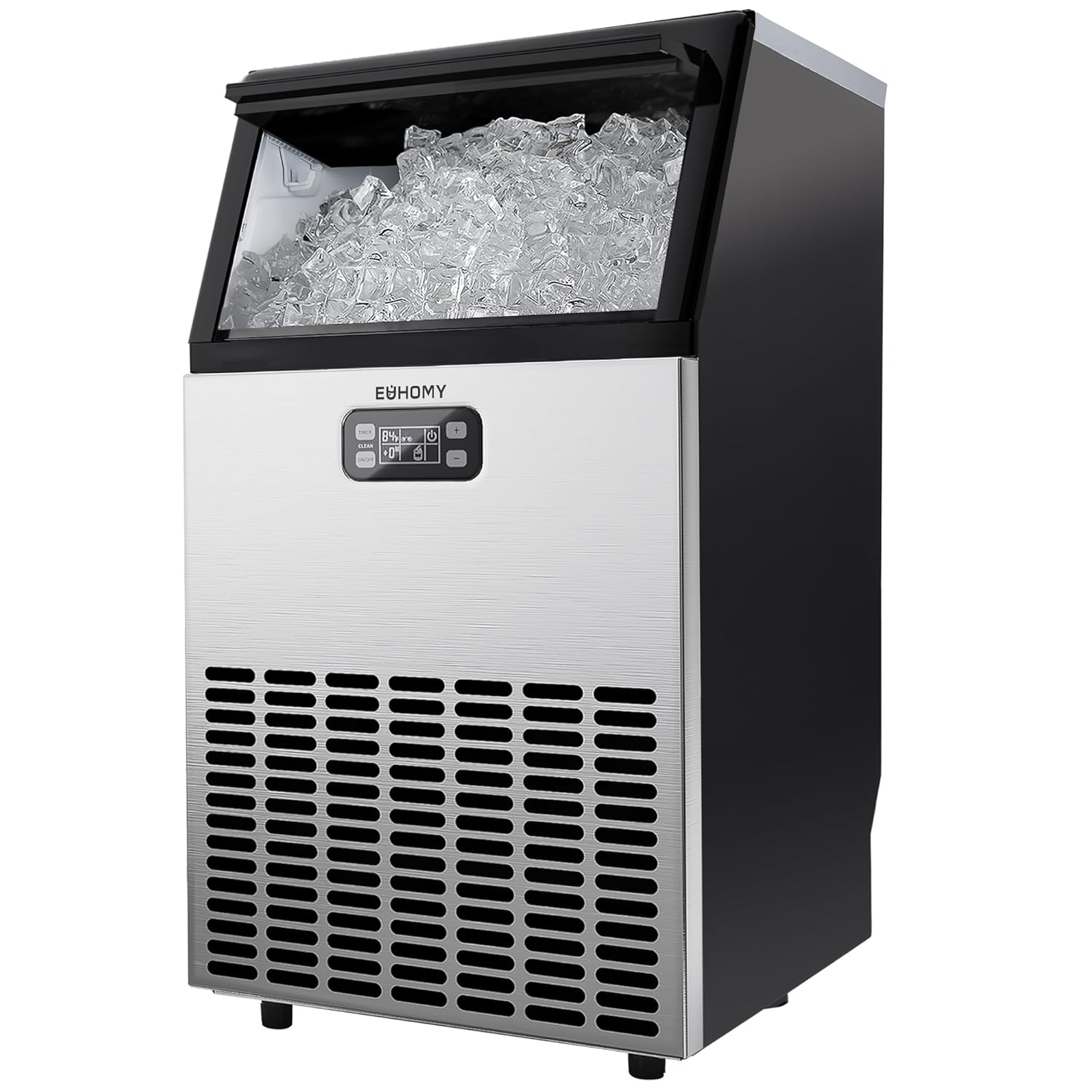
Understanding the Importance of Ice Machines in Commercial Settings
The Role of Ice Machines in Business Operations
In commercial settings, ice machines are a fundamental component for various industries, from restaurants and hotels to healthcare facilities. The availability of ice not only enhances customer experience but also plays a crucial role in maintaining the quality of food and beverages.Why Ice Dispensing is Essential
An ice machine with a dispenser boosts efficiency by providing quick access to ice, saving valuable time for staff and improving service speed. Whether it's served with drinks or used in food preservation, the convenience of a built-in dispenser can be a significant advantage for businesses.Types of Ice for Different Needs
Different ice types, like nugget ice and cube ice, cater to various preferences and applications. While cube ice is commonly used for high-capacity cooling needs, nugget ice is favored for its softer texture, making it ideal for beverages.Ensuring Reliable Ice Supply
Investing in a reliable commercial ice machine ensures a steady supply of ice, crucial for establishments that deal with high customer footfall. By selecting a machine with the right capacity, businesses can prevent ice shortages and avoid disruptions in service. For businesses keen on exploring alternative ice solutions, dry ice benefits might also be worth considering.Key Features to Look for in a Commercial Ice Machine with Dispenser
Top Attributes of a Commercial Ice Machine with a Dispenser
When evaluating a commercial ice machine with a dispenser, several key features should be considered to ensure you make the most suitable choice for your business. Understanding these attributes will contribute to the efficiency and effectiveness of the equipment.
- Ice Production Capacity: Assess the daily ice output. A higher capacity is essential for businesses with substantial ice needs such as hotels and restaurants. Consider whether nugget or cube ice best suits your service style.
- Type of Ice: Determine if your business benefits from nugget ice (ideal for beverages) or cube ice (perfect for refreshments and some culinary applications).
- Air Cooled vs. Water Cooled: Decide between an air cooled or water cooled machine based on your environmental conditions and efficiency needs. Both have their advantages and operational considerations.
- Dispenser Functionality: A dispenser integrated in the machine should accommodate easy and hygienic ice dispensation. It can be a countertop or freestanding design based on space and convenience requirements.
- Storage Bin: Ensure the storage bin can hold an adequate amount of ice, preventing frequent refills and managing peak periods effectively.
- Shipping and Installation: Consider machines offering free shipping to ease budget constraints and factor in installation requirements to seamlessly integrate the ice maker into your space.
- Additional Features: Evaluate features like water dispensers or built-in filtration systems that add value and enhance functionality.
- Price and Value: Compare prices to ensure the machine fits within your budget without compromising on essential features and benefits. Keep an eye out for special offers or discounts that include free shipping or service deals.
For an in-depth guide on selecting the right ice maker, explore our detailed article that covers various features and considerations to match your business aspirations.
Benefits of Having a Built-in Dispenser
Advantages of Integrating an Ice Dispenser
Incorporating a commercial ice machine with an ice dispenser can significantly enhance your business operations. Here are some of the key advantages:- Space Optimization: A built-in ice dispenser helps save counter space, particularly in cramped settings like hotels and restaurants. This integrated design allows for efficient use of your available area without the need for separate machines.
- Time Efficiency: With a built-in dispenser, ice can be accessed instantaneously without requiring labor-intensive scooping. This not only saves time but also enhances workflow efficiency, particularly during peak hours.
- Hygiene and Safety: Having an ice machine with a dispenser reduces contact with the ice, minimizing potential contamination risks. This is crucial in maintaining high standards of hygiene and safety, especially in the hospitality industry.
- Versatility: Machines featuring dispensers can offer both nugget ice and cube ice options. This variety can cater to different customer preferences, whether it's for beverages or food service.
- Improved Water Management: Integrated water dispensers can accompany ice dispensers, providing a seamless solution for cold water at your establishment. This dual functionality can be particularly appealing in commercial environments like airports and office complexes.
- Convenience and Accessibility: Dispensers typically feature user-friendly controls and are accessible for all users. They make serving ice and water simple and convenient, whether the unit is installed on a countertop or as a floor model.
- Organized Storage Solutions: Models with dispensers often come with dedicated storage bins that maintain ice integrity and ensure a constant supply. These storage solutions are typically air-cooled, contributing to efficient operation under varied commercial conditions.
Maintenance Tips for Longevity and Performance
Prolonging the Life of Your Commercial Ice Machine
Maintaining your commercial ice machine with a dispenser is crucial for optimal performance and longevity. Without proper care, issues can arise, impacting both functionality and efficiency. Fortunately, regular maintenance can help keep your ice maker running smoothly and ensure a continuous supply of ice.
Here are some essential maintenance tips to consider:
- Regular Cleaning: Consistent cleaning is fundamental. Ensure that all parts, including the ice bin and water dispenser, are free from mold, mildew, and calcium deposits. Cleaning schedules might vary depending on the type of ice (nugget ice or cube ice) and the machine's location.
- Check Air and Water Filters: Air-cooled and water-cooled ice machines require regular filter inspections. Blocked filters can reduce efficiency and increase energy consumption. For air-cooled models, ensure the air intake is unobstructed to prevent overheating.
- Inspect for Leaks: Examine your ice dispenser storage and other connections for any signs of leaks. Address leaks promptly to avoid damage to both the machine and your establishment.
- Ensure Optimal Water Quality: The water quality directly affects the quality of the ice produced. Consider installing a water filtration system to prevent scale build-up and ice with an unpleasant taste or odor.
- Professional Servicing: Schedule regular maintenance checks with a professional to delve deeper into the inner workings of your commercial ice machines. Professional servicing helps diagnose potential issues that might not be visible to the untrained eye.
By adhering to these maintenance guidelines, you can significantly extend the life of your ice maker and avoid unexpected interruptions in ice production. Remember, a well-maintained machine not only performs better but also saves on costly repairs and operating expenses over time.
Cost Considerations and Budgeting
Budgeting for Your Ice Machine Investment
When considering the purchase of a commercial ice machine with a dispenser, it's essential to factor in the cost implications. The price of these machines can vary significantly based on several factors, including capacity, type of ice produced, and additional features like air-cooled systems or built-in water dispensers.
Here are some key considerations to help you budget effectively:
- Initial Purchase Price: The upfront cost of an ice machine can range from a few hundred to several thousand dollars. Machines with higher capacity and advanced features like nugget ice production or countertop designs may command a higher price.
- Shipping and Installation: Don't forget to include shipping costs, especially if you're opting for free shipping offers. Installation fees may also apply, particularly for larger, more complex machines.
- Operating Costs: Consider the ongoing expenses associated with running your ice machine. Air-cooled machines might have different energy requirements compared to water-cooled ones, affecting your utility bills.
- Maintenance and Repairs: Regular maintenance is crucial for longevity and performance. Allocate a budget for routine servicing and potential repairs to keep your machine in top condition.
- Storage and Accessories: Depending on your business needs, you might need additional storage bins or accessories. These items can add to the overall cost.
By carefully evaluating these factors, you can make an informed decision that aligns with your business needs and financial capabilities. Remember, investing in a quality ice machine with a dispenser can enhance your service offerings and improve customer satisfaction.
Choosing the Right Ice Machine for Your Business Needs
Selecting the Perfect Ice Machine for Your Establishment
Choosing the right commercial ice machine is paramount for meeting the specific needs of your business. Here are some crucial considerations to bear in mind:- Type of Ice: Determine whether your business requires nugget ice, cube ice, or another form that best suits your offerings. For beverages, cube ice is popular, while nugget ice might be preferred for its chewability.
- Capacity Requirements: Consider the daily ice production capacity that your business demands. Evaluate service peaks and plan accordingly to avoid ice shortages.
- Dispensing Needs: A machine with a built-in dispenser can provide easy access to ice, particularly beneficial for hotels or self-serve venues. Some models also incorporate water dispensers, offering a two-in-one solution.
- Size and Placement: Evaluate available space for your machine. Countertop ice makers are perfect for limited spaces, while larger air-cooled machines may require more room.
- Energy and Cooling Efficiency: Opting for an air-cooled or water-cooled machine can influence energy consumption. Make sure to choose one that fits your energy efficiency goals.
- Maintenance and Reliability: Efficiency is critical for long-term use, so regular maintenance will ensure longevity and performance stability. Look for models with easy-access parts for hassle-free maintenance.
- Cost and Shipping: Keep your budget in mind, considering the initial price, shipping options, and potential energy savings. Many retailers offer free shipping, which can significantly affect your overall investment.
-logo-retina.png)
